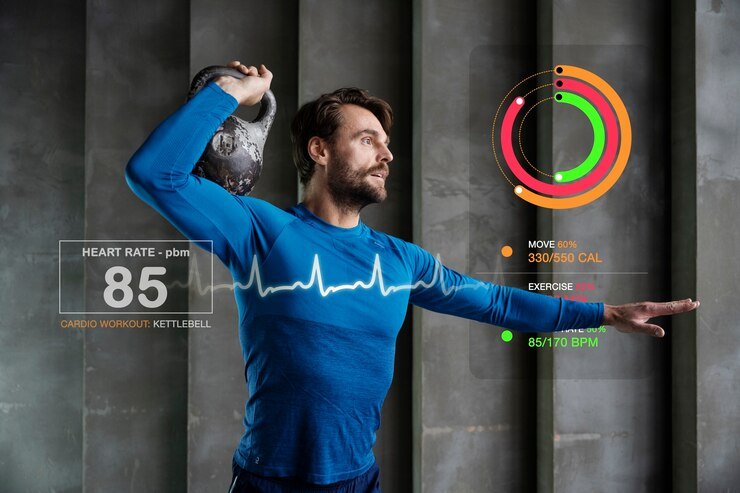
Welcome to a journey towards a healthier heart! Cardiovascular fitness, often referred to as cardiorespiratory fitness or aerobic fitness, is a cornerstone of overall health and well-being. It encompasses the efficiency of your heart, lungs, and circulatory system in delivering oxygen to your body’s tissues during sustained physical activity. In this blog post, we’ll delve into the importance of cardiovascular fitness, its numerous benefits, and practical ways to improve it.
The Importance of Cardiovascular Fitness:
Your heart and cardiovascular system are likened to an engine and a network of roads, respectively, in this analogy. Just as a well-maintained engine and smooth roads ensure efficient transportation, a strong heart and healthy cardiovascular system are crucial for overall health. The heart pumps blood, delivering oxygen and nutrients to every part of the body, while the cardiovascular system acts as a transportation network, ensuring unimpeded blood flow. When both are in good condition, the body operates optimally, with increased energy, endurance, and a reduced risk of health issues. Prioritizing cardiovascular fitness through exercise and a healthy lifestyle is an investment in long-term well-being.
Heart Health:
Regular cardiovascular exercise is akin to strength training for your heart. By engaging in activities that elevate your heart rate, such as jogging, swimming, or cycling, you’re essentially giving your heart a workout. With each beat, your heart becomes more efficient at pumping blood throughout your body, ensuring that all your tissues receive the oxygen and nutrients they need to function optimally. As you consistently challenge your heart through exercise, its muscle becomes stronger and more resilient. This increased strength enables it to pump blood more effectively with each contraction, thereby reducing the workload on the heart over time. Moreover, regular cardiovascular exercise has been shown to lower blood pressure and cholesterol levels, both of which are significant risk factors for heart disease. By keeping these vital markers in check, you’re actively reducing your risk of developing cardiovascular conditions such as heart attacks, strokes, and coronary artery disease. IN essence, by incorporating regular cardiovascular exercise into your routine, you’re not only strengthening your heart but also safeguarding its long-term health. It’s a proactive approach to heart care that pays dividends in terms of overall well-being and quality of life.
Improved Lung Function:
Engaging in cardiovascular activities like running, swimming, or cycling has a profound impact on your respiratory system. These activities prompt you to breathe more deeply and rapidly, which in turn enhances the capacity of your lungs to take in oxygen. Think of it as a workout for your respiratory system. Just as lifting weights strengthens your muscles, cardiovascular exercise strengthens your lungs. Over time, your lung capacity increases, meaning you can take in more air with each breath. This improved lung function translates to better oxygen uptake by your body. Oxygen is crucial for fueling your muscles and organs, especially during physical activity. With enhanced respiratory efficiency, your body becomes more adept at delivering oxygen to where it’s needed most, allowing you to perform tasks with greater ease and endurance. Whether it’s climbing stairs, chasing after your kids, or simply going about your daily activities, you’ll find that tasks that once left you breathless become more manageable as your lung function improves. IN essence, by engaging in cardiovascular exercise, you’re not only strengthening your heart but also optimizing the entire oxygen delivery system of your body, leading to improved overall health and vitality.

Weight Management:
When you engage in cardiovascular exercise, such as jogging, cycling, or dancing, your body requires energy to sustain the activity. This energy comes from the calories stored in your body. As you continue to exercise, your body burns through these calories to fuel your muscles and keep you moving. Over time, this calorie-burning process can lead to weight management and fat loss. By consistently incorporating cardiovascular exercise into your routine, you create a calorie deficit, meaning you’re burning more calories than you consume. This deficit encourages your body to tap into its fat stores for energy, ultimately resulting in fat loss. However, for optimal weight management, it’s essential to combine cardiovascular exercise with a balanced diet. While exercise helps burn calories, your diet plays a significant role in determining your overall calorie intake. By consuming nutritious, whole foods in appropriate portions, you can support your weight loss efforts and maintain a healthy weight more effectively.
Enhanced Mood and Mental Well-being:
Cardiovascular exercise triggers the release of endorphins, often referred to as the body’s natural feel-good chemicals. These neurotransmitters not only reduce pain perception but also induce feelings of euphoria and well-being. Consequently, engaging in regular cardiovascular activities like running, swimming, or cycling can have profound effects on mental health. Studies have consistently shown that physical activity helps alleviate symptoms of stress, anxiety, and depression. By incorporating cardiovascular exercise into your routine, you’re not just benefiting your physical health but also nurturing your mental well-being. It’s a natural and effective way to boost mood, reduce negative emotions, and enhance overall mental resilience and vitality.
Increased Energy Levels:
When you improve your cardiovascular fitness through activities like jogging, cycling, or dancing, you’re essentially enhancing your body’s efficiency in delivering oxygen and nutrients to your cells and tissues. This optimized circulation means that every part of your body receives the vital energy and nourishment it needs to function optimally. As a result, you experience increased energy levels and reduced fatigue throughout the day. Instead of feeling drained and sluggish, you’ll find yourself feeling more alert, focused, and ready to take on whatever tasks or challenges come your way. This sustained energy boost is not only beneficial for physical activities but also enhances productivity, mental clarity, and overall well-being. By prioritizing cardiovascular exercise, you’re investing in a natural and sustainable way to elevate your energy levels and enhance your quality of life.

